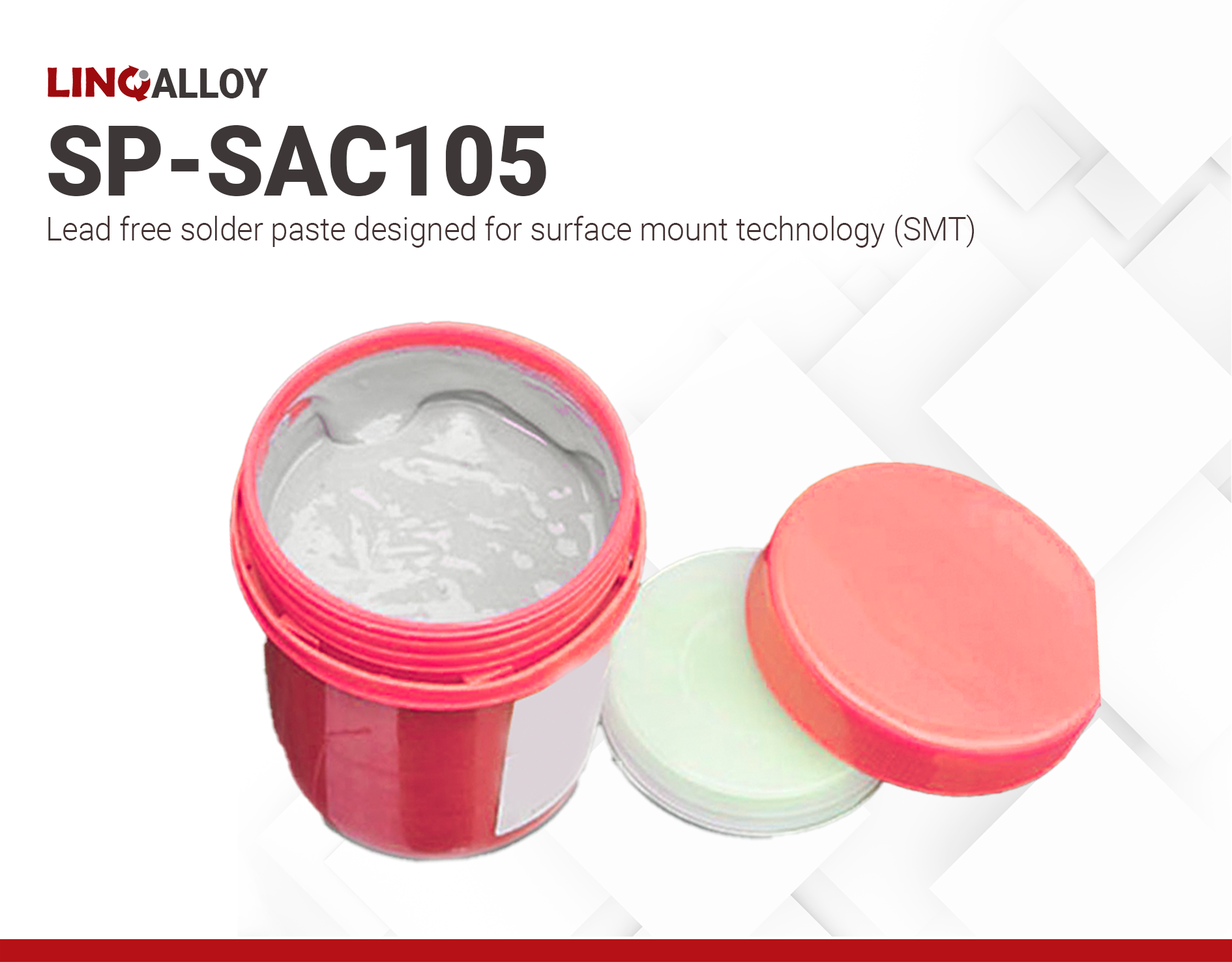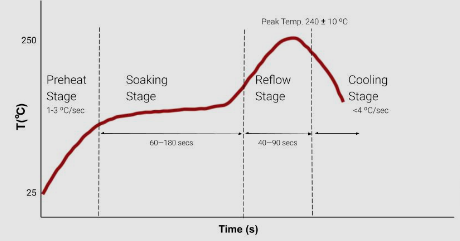LINQALLOY SP-SAC105 | Solder paste
- Pb-free Sn98.5–Ag1–Cu0.5 alloy
- Solder paste for surface mount technology
- RoHS compliant
Product Description
LINQALLOY SP-SAC105 is a Pb-free solder paste composed of 98.5% Sn, 1% Ag, and 0.5% Cu. It has been designed for surface mount technology (SMT). SP-SAC105 is being offered in two options: No-Clean and Water-Soluble. No-clean solder paste is designed for applications where post-soldering cleaning is unnecessary, providing minimal, non-conductive residues. On the other hand, the water-soluble solder paste is crafted with refined tin powder that allows you to clean flux residue left after the reflow process.
LINQALLOY SP-SAC105 is produced using refined Sn powder and minimal oxide content, enabling exceptional printing capabilities. Our SAC105 solder paste offers a compelling combination of properties for reliable and high performance electronics assembly.
Technical Specifications
| General Properties | |||||||||
| |||||||||
| |||||||||
| Physical Properties | |||||||||
| Viscosity Viscosity Viscosity is a measurement of a fluid’s resistance to flow. Viscosity is commonly measured in centiPoise (cP). One cP is defined as the viscosity of water and all other viscosities are derived from this base. MPa is another common unit with a 1:1 conversion to cP. A product like honey would have a much higher viscosity -around 10,000 cPs- compared to water. As a result, honey would flow much slower out of a tipped glass than water would. The viscosity of a material can be decreased with an increase in temperature in order to better suit an application | 200±20 mPa.s | ||||||||




